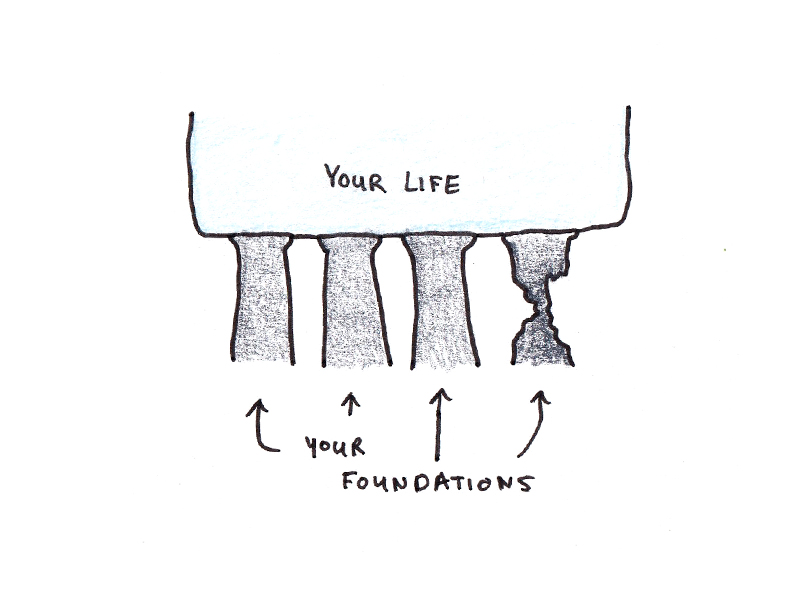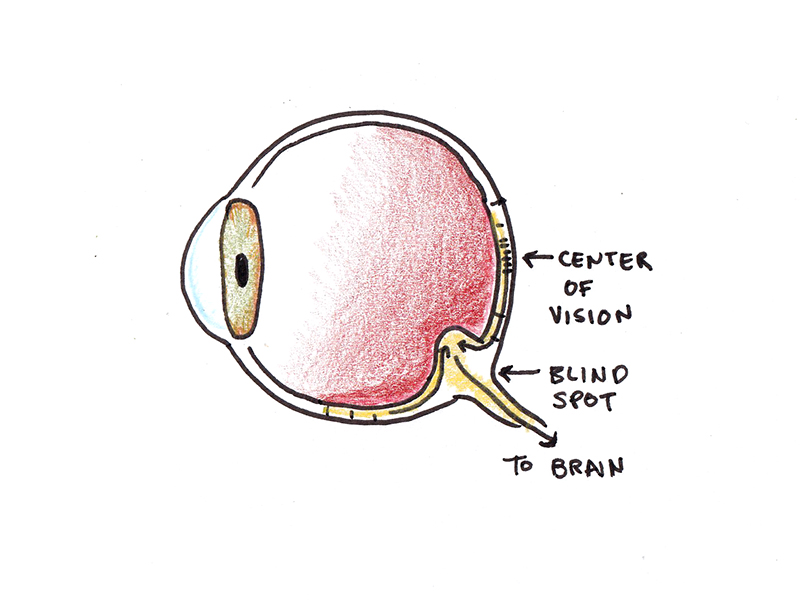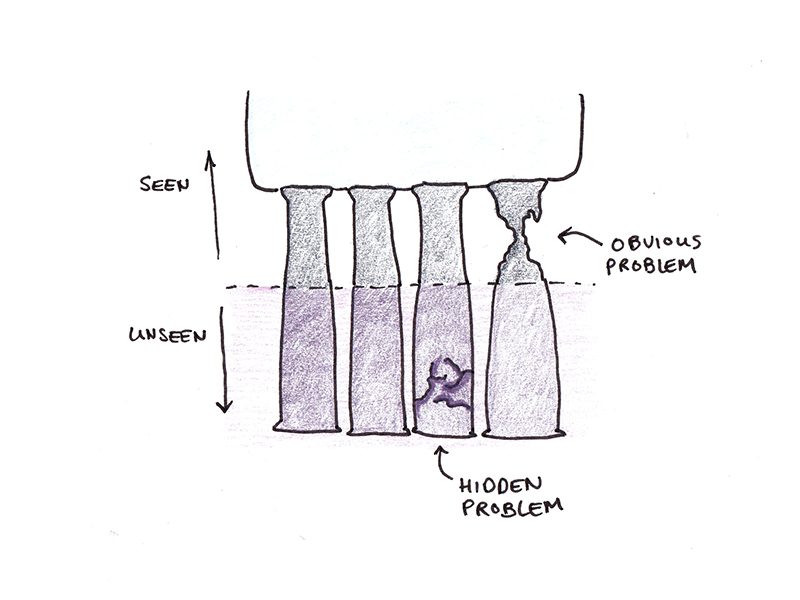One of the questions I’ve gotten from people interested in my Foundations program (opening next week!) is whether they need to work on all their foundations.
A pretty typical response has been like this:
“I feel pretty good about my gym routine and my finances. It’s my relationships that aren’t doing so well.”
Or,
“I’m good with my family and friends, but I haven’t been exercising much lately.”
In other words, when assessing their overall foundations, most people can see some areas that are in obvious need of repair as well as some that they feel okay about.
Something that looks a bit like this:

There’s nothing wrong with that picture. Life is dynamic and ever-changing. So while a good habit or system can last longer, there’s always going to be disruptions that set you back. And, for some of us, we may feel like we’ve never adequately figured out some aspects of our life, and so they remain sticking points.
But I’d argue that this picture is missing something important. It’s not simply the foundations that obviously need work that cause problems. Instead, the ones that seem fine but are secretly cracking are the most dangerous.
Blind Spots and Hidden Weaknesses
The inside of your eye is backwards. Instead of the wiring for your retina running directly toward your brain where it becomes vision, it first projects outward and then bundles back into the optic nerve. This little detour creates a spot in each eye where you can’t see: your blind spot.

The thing about your blind spot, though, is that you never see it! It’s not as if we walk around with gaping holes in our field of view. Instead, your brain automatically “fills in” whatever it thinks should be there to create a seemless picture.
(Don’t believe me? Try this demonstration to prove it to yourself!)
Something analogous occurs when we think about how our life is going. Essentially, we run into three different observations of any area of our life:
- Life is going well. The foundation in my life is supporting me, and I’m not concerned about it.
- I’m facing obvious problems. Your foundation has slipped, and now you’re facing a clear challenge.
- I think things are going well, but I’m actually facing problems. These are your blind spots, all the areas of your life that seem fine only because you aren’t really paying attention to them. Like the missing parts of your field of view, you don’t notice them, but the problems they create don’t immediately redirect your attention.

What are examples of foundational blind spots?
- The person who is a “bit” out of shape. In truth, their health has deteriorated, but they don’t notice because they rarely exert themselves.
- The relationships that have gone stale. You blame life stress, work or simply wanting different things in life without realizing you’ve been making steady emotional withdrawals from your relationship bank account.
- The professional who feels like work is a little chaotic. However, she’s already been removed as a candidate for raises or promotions by upper management. If economic times get tight, she’s the first to go.
- The person who isn’t sure whether he’ll have enough to retire. But, really, he has multiple outstanding loans and doesn’t have nearly enough savings. The thought of calculating it out feels distressing, though, so he ignores it.
Having foundational blind spots is not a moral failing anymore than visual blind spots are. Every one of us has blind spots. They’re unavoidable because life is complicated, and if an area isn’t causing us major problems right now, our attentional system is unlikely to surface it.
But it’s exactly because of these blind spots that a holistic program to assess all our foundations has value. Prevention is far less costly than a cure. Fixing a problem before it becomes a crisis is one of the best investments you can make.
Fixing the Problems You Know About (And Those You Don’t)
This is one of the reasons I’m so excited to work with a group of students for a year-long, well-rounded program. While I’m sure everyone who signs up is going to have a list of foundations that need work and those that do not, I’m even more excited about the possibility of working with people to improve things they hadn’t even anticipated.
Nor is the process limited to “fixing” a weakness. Sometimes, you’re on a perfectly typical path, but you simply don’t realize a much better option is available. For instance, the person who struggles to exercise the minimum might end up realizing they can run a marathon, or the person who isn’t sure they can save enough to retire might find a way to retire decades ahead of time.
In brief, working on a holistic program of foundations is helpful precisely because it focuses you on the things that don’t seem to obviously need improvement. By detecting cracks before they crumble, and allowing you to aim at previously unimagined goals, you can reap a much larger benefit than simply by fixing the problems you already know you should.
_ _ _
Foundations will be open for registration next week. If you want to join us, however, you need to do it next week—after that, we’ll be starting the program, and it will be closed for new registrations, probably for at least a year. I hope I’ll have the chance to work with you!

 I'm a Wall Street Journal bestselling author, podcast host, computer programmer and an avid reader. Since 2006, I've published weekly essays on this website to help people like you learn and think better. My work has been featured in The New York Times, BBC, TEDx, Pocket, Business Insider and more. I don't promise I have all the answers, just a place to start.
I'm a Wall Street Journal bestselling author, podcast host, computer programmer and an avid reader. Since 2006, I've published weekly essays on this website to help people like you learn and think better. My work has been featured in The New York Times, BBC, TEDx, Pocket, Business Insider and more. I don't promise I have all the answers, just a place to start.